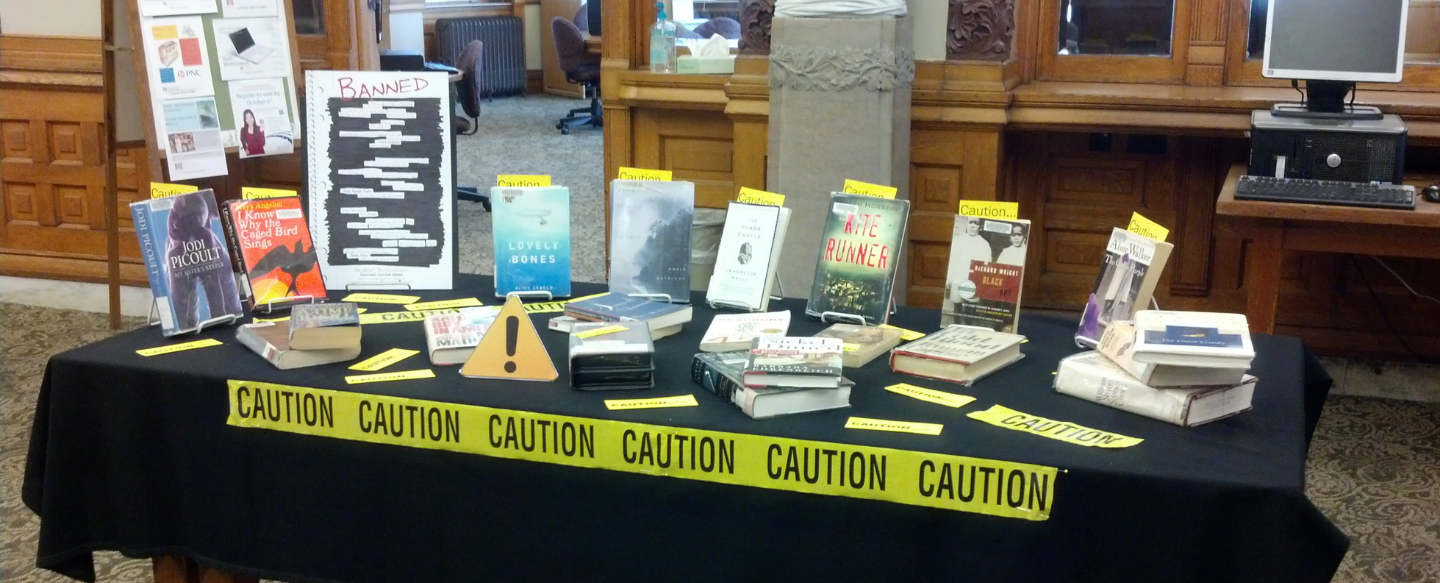Why Are Books Being Banned Across the U.S.?
Ask Students: Why are banned books back in the spotlight? Why shouldn't books be banned? Who is trying to ban them in the U.S.?

A display of banned books. | Charles Hackey
Share
February 9, 2022
Ask Students: Why are banned books back in the spotlight? Why shouldn't books be banned? Who is trying to ban them in the U.S.?
Share
Recently, Texas and dozens of other states banned books deemed inappropriate by politicians and parents, although many have been in school libraries for years. Why are books—especially those about people of color and queer individuals—now being banned? Watch the video clip below from NBC News and use this banned books lesson plan to work through discussion questions and exercises.
Erasure: the removal of writing, recorded material or data.
Why do you think some states are choosing to pass bills that would ban teaching about racism in the classroom? What are the potential consequences of such bans on students' understanding of history and current events?
Jerry Craft's graphic novel, "New Kid," focuses on the experiences of a young black student transitioning to a predominantly white school. How do personal stories like this contribute to our understanding of broader societal issues related to race and identity?
The American Library Association mentioned that the majority of book challenges come from parents and patrons, not students. Why might parents be more inclined to challenge books than students? What are the implications of this on freedom of expression and academic freedom?
Mickey Kendall's comment suggests that banning books may actually make them more attractive to young readers. Why might this be the case? How does controversy play a role in shaping public opinion and interest?
Mr. Craft mentions the experience of being the only black student in a classroom reading about painful historical events like slavery. How might this experience be different for students of different backgrounds? How can educators create a more inclusive environment when discussing sensitive or potentially traumatic topics?
Following a recent decision in Tennessee by a school district to ban Art Spiegelman’s Holocaust-based graphic novel Maus, a local pastor led a mass book burning, including titles like Harry Potter. Written by J.K. Rowling, the series is no stranger to controversy, and decades ago groups similar to the ones banning and burning books now attempted similar tactics in the face of the series’ rising popularity. Complete the activity below and answer the discussion questions
Examine and compare these two banned book lists from 2003 and 2020.
Read the following quotes from author Stephen King and Supreme Court Justice Potter Stewart. What do these quotes mean to you in light of the recent surge in banning books?
Censorship and the suppression of reading materials are rarely about family values and almost always about control, about who is snapping the whip, who is saying no, and who is saying go. Censorship's bottom line is this: if the novel Christine offends me, I don't want just to make sure it's kept from my kid; I want to make sure it's kept from your kid, as well, and all the kids. This bit of intellectual arrogance, undemocratic and as old as time, is best expressed this way: "If it's bad for me and my family, it's bad for everyone's family.
Censorship reflects a society’s lack of confidence in itself. It is a hallmark of an authoritarian regime.
Listen to or read this short interview with two members of a banned books club in Tacoma, Wash., and answer the discussion questions.
